A Week Alone In: Lithuania and Poland
by The Hairpin
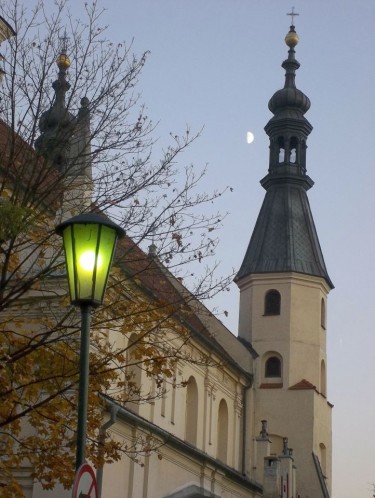
Diana Clarke recently traveled through Lithuania and Poland.
Edith Zimmerman: Okay. Lithuania and Poland. Why there? And where specifically?
Diana Clarke: Well, I study Yiddish and writing, and Vilnius, the capital of Lithuania (called Vilne in Yiddish) was once known as “the Jerusalem of Lithuania,” because it was the center of Yiddish literary and intellectual culture before World War II. It was very much the place I had mythologized to myself as the origin-point of my identity. Poland, obviously, was also a big Yiddish center (although the Polish Yiddish dialect is different, and much harder for me to understand — not that that’s relevant, given that there are basically no Yiddish speakers left in Poland now), but it’s also where my dad’s family is from. Polish Catholics — so between that and the Lithuanian Jewish background, I’ve inherited a lot of cultural guilt. Anyway, I knew I wanted to see Warsaw and Krakow — I’d just done a course on the history of Jewish life in Europe too, so I felt like I had a little more knowledge, and was a little more prepared to understand the context of where I was going. My academic program was in Copenhagen, and we had a two-week break, so I flew to Vilnius, and then took a bus to Warsaw (got my passport checked in the middle of the night), and an overnight train to Krakow, squeezed next to a very chatty Ukrainian man, and woken up every thirty minutes by the ticket inspector.
Tell me about the borscht.
Oh lordy, the best. Don’t tell my ancestors, but I think I prefer Ukrainian-style borscht (with chunks of vegetables and beans and meat) to the clear, brothy Polish style. But I didn’t have a bad bowl the whole time. Just varying degrees of delicious, usually paired with pierogi full of sauerkraut and mushrooms, and maybe some braised cabbage or beet salad, just in case my root vegetable/brassica intake had gotten a little low.
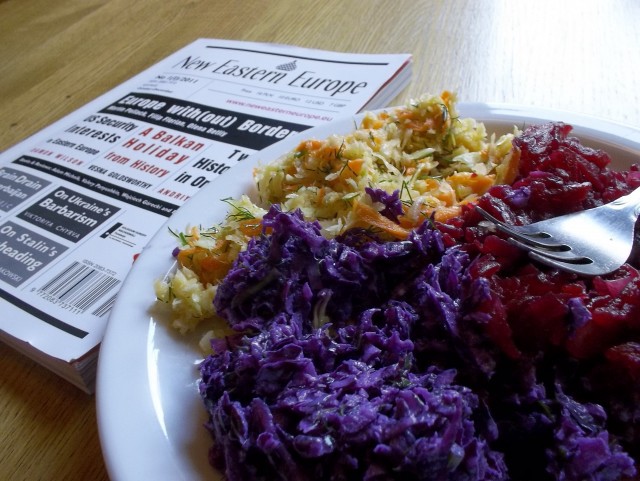
What did you wear?
Sweaters, boots, jeans, a coat. It was cold — I went in November — but not anything worse than New York gets. I was mostly concerned with carrying as little as possible (I only brought a backpack and a little pocketbook), and with not looking too American.
How much did it cost?
Again, I was already in Europe for an academic program in Copenhagen (round trip to NYC, $1,000), so the overhead costs were already paid. My flight from Copenhagen to Vilnius (on Baltic Air, with a stopover in Riga) was €69.56, and the bus from Vilnius to Warsaw cost THREE EUROS (46.94 EEK on Eurostar!). The train was a tiny bit more expensive, at 81 PLN, which comes out to about $25. I also spent five nights in hostels, at about $8 per night. Plus food and drinks and such, it came out to about $300 total.
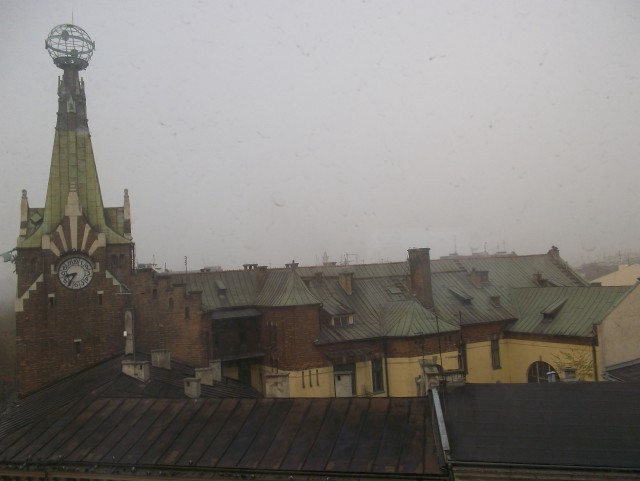
Where did you stay? Where and when did you get the best sleep?
I stayed in hostels in Vilnius and Krakow — three nights and two nights respectively — and I slept two nights on transportation (between Vilnius and Warsaw and between Warsaw and Krakow), figuring that if I was going to pay for transportation, I didn’t need to pay for lodging as well. I realize that that decision is a young person’s decision. And this is cheating, but — the best sleep I got was on the night I left Krakow. After two horrible short nights of sleep on the bus and train, I sank dreamlessly into the bunk bed of my Krakow hostel. I slept loads, but didn’t much love the top bunk or the sterile hostel, and it never felt like enough. But the when leaving Krakow, I booked an overnight train to Budapest. (This doesn’t figure into the traveling-alone time because in Budapest I met my boyfriend at the time, who had flown across the Atlantic to see me, and who I promptly lost in the Budapest airport.) Anyway, on this train I was in a sleeper car, only half full. The other passengers were three giddy young people — East Asian, I think maybe Taiwanese. Anyway, we didn’t have any common languages, and as a result there was no pressure to communicate or be sociable. Instead we just smiled at each other, helped one another hoist luggage and draw the blinds, and climbed into bed. I fell asleep to the rocking of the train, and when I awoke nine hours later, it was to small bright lovely houses nestled in the hills outside Budapest flying past my window. My bed was warm, I had slept long and well, and that night I was going to see the boy I loved.

Who was one of the most interesting people you met?
On the first morning in my hostel in Vilnius, I was eating waffles (which the owner of the hostel made personally every morning in a tiny plug-in waffle iron) with local jam, and chatting with some other travelers, obviously about Yiddish. When I managed that I was hoping to go find the Jewish cemetery, this one guy was really intrigued. He turned out to be a 39-year-old ex-psychiatrist from New York, who’d spent ten years living totally abstemiously (no sex, alcohol, or drugs; eating dinner with his best friend every night) in order to cope with the intense trauma of his patients, and with the feelings-box that his studio apartment had become from being used as his office as well. When I met him he was a year and a half into an undirected trek around the world supported by the sales of his documentaries about treating manic depression and schizophrenia without medication. And despite the heaviness of his story, he turned out to be a really adventuresome and goofy guy, and we walked around for three hours looking for this cemetery, which turned out not to exist any more except for a tiny memorial (because the Soviets had used the Jewish headstones to make the steps for the national art museum), and we sat and he told me about how distanced he felt from his Jewishness and his family, and we found our way to the Russian Orthodox cemetery, which was full of old people (the entirety of Vilnius is full of old people) laying flowers and prayers in preparation for All Souls’ Day, and there was one grave with a bare femur lying on top of it, and does one smile when taking pictures in a cemetery? He took a picture of me, and later that day introduced me to a group of Lithuanian anarchist students, and we’ve hung out in New York a few times since.
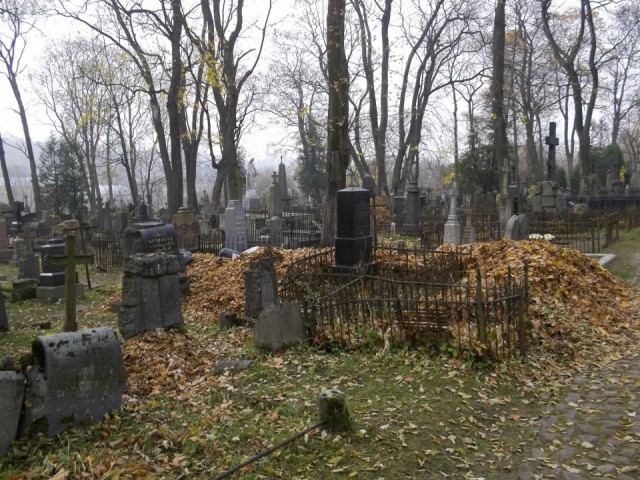
What was the hardest you laughed?
On my second day in Krakow, I decided to go see the Polish National Gallery, wondering how Poland represented itself, officially. There was a huge and boring exhibit on the evolution of Polish military uniforms over the last 500 years (spoiler alert: gold braid! lots of felt!), and a more interesting one on 20th Century Polish art, and in a little hallway between the two were three little glass display cases and a little bit of wall text: about the Jews in Poland! (Spoiler alert: there used to be some.) The cases were full of beautiful silver ritual objects — menorahs etc. — all labelled “Purchased from synagogue X between 1937 and 1939.” Which — I mean it was just this obvious obscuring of history, this cognitive dissonance as what I knew and what I saw totally didn’t line up. I knew there was no way I could really convey that, but I noticed that one of the books (in Hebrew, so right to left) was upside down, and tried to convey it to a museum employee. “No English, no English!” he shouted, flapping his hands in the air and walking briskly away. When he was gone, I just completely broke down laughing at the absurdity of the whole thing, at my inability to communicate or reconcile. Like, how is this true! There is nothing I can do here! I give up! It felt very much like being in a Kafka story.
Tell me about the bands / music!
I’m really bad at going to see music when I’m home in New York (plus, not really willing to spend the money), but seeing music is one of my favorite things to do when I travel. I like trying to see a local band in a local place, getting a sense of the scene such that I can. I pick up an alt-weekly if there is one, or just use the internet. I ended up at Tamsta, a rock club in Vilnius, seeing this Lithuanian folk band made up of droopy adorable Lithuanian guys, and I had to listen to the music because I couldn’t eavesdrop because I don’t speak Lithuanian, and I say at the bar and drank Lithuanian beer. One of the best things about seeing music abroad is that it often gives me the excuse to go to bars alone and just observe, which I really love doing, but which always feels more accessible when I’m not at home.
What was the latest you stayed up?
I think the latest I stayed up was until two or so, talking with the ex-psychiatrist, and to a friend-of-a-friend who was doing a Fulbright in Latvia and happened to be in Vilnius for the weekend, and she and I just had a million weird Jewish identity things in common, and I found out that the ex-psychiatrist’s sister was a famous YA author whose books I had read, and we threw darts with some locals at this weird little dive bar and gawked at the six teenagers running around the square dressed up for Halloween, which isn’t really celebrated in Lithuania.
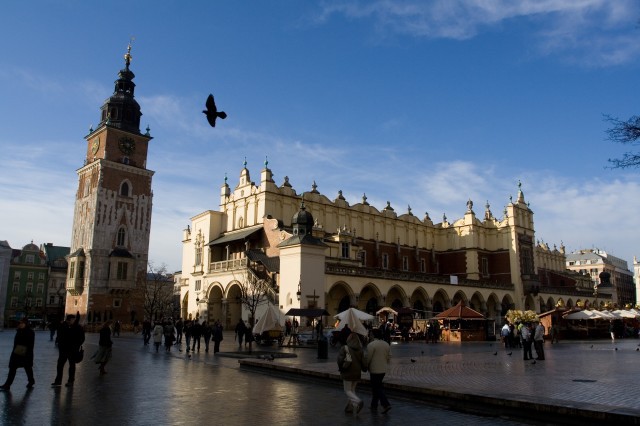
What was the furthest-away you felt, if that makes sense?
I’d have thought it would be in Krakow, where I didn’t really end up meeting anyone, and wandered around the city for three days more or less completely alone, using the tiny amount of Polish I knew to buy apples and coffee and go to museums and galleries and talks on the Polish economic crisis. But because I was spending so much time in my head, I always recognized the landscape of my mind, and how I processed things. And in Vilnius, I made friends pretty quickly. So out of everything, what felt the most unreal was the morning I sat for hours in a swanky Warsaw hotel restaurant reading The Marriage Plot and lingering over a decadent breakfast that I sort of bought by accident (because they charged me for the whole meal when I just wanted a coffee) but decided to enjoy. I absolutely cannot afford decadent multi-course hotel breakfasts in New York.
What would you tell someone going to either place? (Tips, etc.?)
As with travelling in any country, I think it’s really important to learn the basics of the language — pleases and thank yous, coffee with milk, etc. And also to say yes to things when they come your way, and to be flexible, and extremely understanding. I don’t know! I had never encountered a squat toilet before, and crouched over it the wrong way the first time, so don’t do that. Yeah — make sure you know which direction you’re squatting.
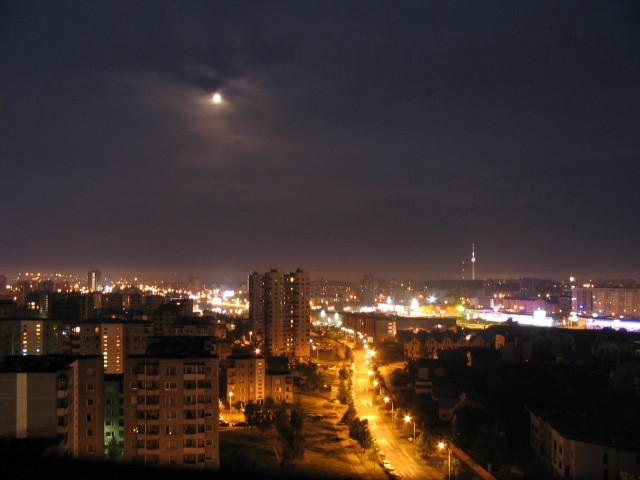
Diana Clarke sometimes writes about books for the Village Voice, and when she can’t get anyone to publish her, she just sends very long emails to her friends. Her short story “Pick Up” is in the most recent issue of Armchair/Shotgun, and she can be found on the internet at @dclarkwithane.